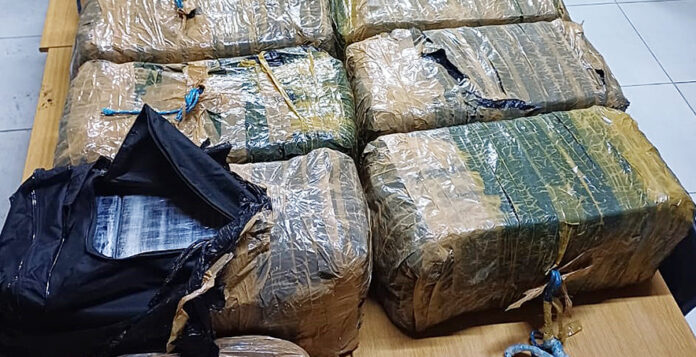A confidential police report submitted to parliament by suspended police minister Senzo Mchunu has revealed the identities of drug mafiosi in South Africa, with Nigerian drug lords dominating the illicit drug trafficking business in the country.
The report, which was compiled by the SAPS’s Crime Intelligence and Forensic Services division, and presented to Mchunu in June, identified Nigerians as local modern-day Pablo Escobars in South Africa.
It identifies Stanley Egbo, Michael Ifebuche, Sunny Nwobodo, Johnson Aneke and Kingsley Chukwu as the drug kingpins in Gauteng, which is the country’s most lucrative territory.
In Free State, the top two drug czars are identified as Nigerian nationals named Uneh Umeh and Uneh Ukuruibe.
Of the five profiled kingpins in North West, three are Nigerians identified as Yusuf Kaloo, Tonny Okechukwu and David Chukwu. In Limpopo, two alleged Nigerian mafiosi named Augustine Enejike and Simon Nkahukwu, are ruling the roost.
The coastal belt of Western Cape, Eastern Cape and KwaZulu-Natal are the only places where local drug lords rule.
For instance, in Western Cape, notorious underworld bosses Ralph Stanfield, Donkey Booysen and Nassief Modack are identified as major players on the Cape Town streets.
In KwaZulu-Natal, eThekwini is the epicentre – specifically Phoenix and Umlazi. There, the likes of Gonaseelan Nadesan, Trevor Gopal and Sifiso Zameka were named as the leading suppliers of narcotics.
In Eastern Cape, Mario du Preez and Wesley Billet, the leaders of the Bad Boys gang, have been identified as the local merchants running the show.
They compete for the illicit trade with Trevor Finnis, the leader of the Trevor Boys gang, Craig Solomons, the leader of the Dondolos gang, and Siphosethu Jam.
Mchunu’s report, which is likely to open a Pandora’s box, was supposed to have been discussed in parliament during his appearance before the ad hoc committee investigating the infiltration of police by criminal syndicates but was not dissected due to time constraints.
Although the report, which Sunday World has seen, indicates the involvement of locals in the unlawful trade, it has, however, painted an alarming trend concerning the operations of Nigerian drug trafficking networks across
the country.
“Nigerian drug trafficking organisations have, for decades, played a central role in cocaine, heroin and synthetic drug importation in South Africa. Their structure is fluid and decentralised, relying heavily on diaspora-linked cells, street-level integration, and the bribery of officials,” the report reveals.
The report states that “Nigerian syndicates operate through guesthouses, informal retail outlets and nightclubs in [Joburg suburbs of] Hillbrow, Yeoville and Rosettenville, using familiar tribal ties to recruit couriers and often marrying locals to gain permanent residency.”
The report further identified West African syndicates, particularly Nigerian cartels, as the primary coordinators of transnational drug operations, often working with South African intermediaries responsible for storage, packaging and local
distribution. Cocaine, states the report, is largely sourced from Colombia, Brazil and Peru, and arrives in powder form, which is reprocessed locally before being distributed.
Shipments typically pass through countries such as Nigeria, Ghana, Togo and Angola before reaching South Africa.
The main entry points for cocaine include OR Tambo International Airport in Johannesburg and Cape Town International Airport, where traffickers frequently rely on human couriers, or “body packers”. The ports of Durban, Cape Town and Port Elizabeth are also cited as major nodes in maritime smuggling.
It warns that South Africa’s strategic geographic positioning, modern infrastructure, and extensive air and sea links make it an attractive base for traffickers seeking access to both African and global markets.
The most prevalent substances include cannabis, heroin, mandrax and cocaine, though the report notes a growing presence of synthetic drugs and opioids. While cannabis and mandrax remain the most widely used substances, cocaine is seen as a drug of choice among middle-class users.
The report emphasises that the country’s fight against narcotics will require enhanced border security, improved inter-agency intelligence sharing, and stronger collaboration with international partners.
“Drug trafficking in South Africa is not just a criminal problem,” the document cautions, “but a national security issue that fuels corruption, gang violence, and social decay.”



